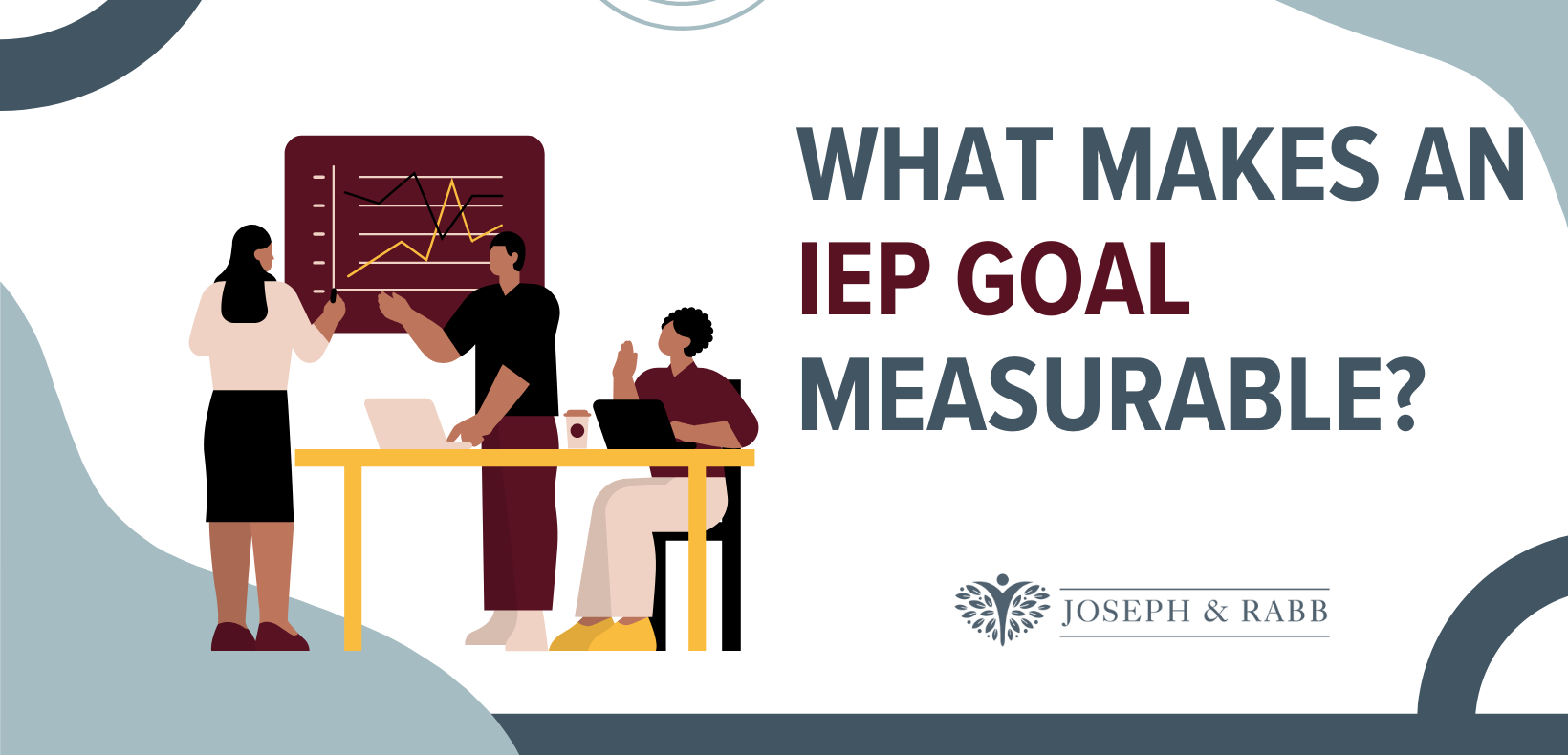When your child has an Individualized Education Program (IEP), the goals in that plan matter. As a parent, you want to know what your child is working on, how progress will be measured, and whether the school is providing appropriate support. That is where measurable goals come in.
As education lawyers who work closely with families, we often hear from parents who feel unsure about their child’s progress. They are frustrated by IEPs filled with vague goals that sound good (or are completely unclear, contain typos, the name of the wrong child, you name it!) but are difficult to track. If that sounds familiar, you are not alone.
In this post, our special education attorneys explain what it means for an IEP goal to be measurable, and why that matters for your child’s education and legal rights.
Why Measurable Goals Matter
Measurable IEP goals help everyone on the team stay aligned. That includes parents, teachers, service providers, and school administrators. When goals are vague, it becomes difficult to track progress, evaluate whether support is effective, or make informed changes.
Consider a goal like “John will improve in reading comprehension.” While it sounds positive, it leaves too many questions unanswered. What does “improve” mean? How will we know if he has made progress? When will this be evaluated?
Now compare that with:
“By June 2025, John will answer at least 4 out of 5 comprehension questions correctly after reading a fourth-grade level passage, as measured by weekly reading assessments.”
This version gives clear information about the expected outcome, the method of measurement, and the timeline for achieving it.
What Makes a Reading Goal Measurable
Reading goals should be based on your child’s unique needs. Some students may need support with decoding, others with comprehension, fluency, or all three areas. A measurable reading goal will spell out the skill being targeted, what success looks like, how it will be measured, and when it should be achieved.
Here are a few questions to ask:
- What exact reading skill is being targeted?
- What level of accuracy is expected (hint: reading anything at 80% accuracy means you can’t really read it– try reading something with 20% of the words deleted).
- How often will data be collected and reviewed?
Example of a vague goal:
“Maria will recognize sight words.”
This does not say how many words Maria needs to know, which words she will be tested on, or when she is expected to meet this benchmark.
Example of a measurable goal:
“By June 2025, Maria will correctly read 60 second-grade Dolch sight words with 95 percent accuracy, as measured by biweekly assessments.”
This version provides the key details needed to monitor progress and adjust instruction.
Questions to Ask When Reviewing IEP Goals.
Whether you are attending an initial IEP meeting or reviewing an annual plan, ask these questions to make sure the goals are meaningful and measurable:
- What is my child’s current level of performance?
- Are the goals specific about what skill is being taught and how success will be measured?
- What percentage of mastery is considered appropriate for this skill?
- How often will progress be reviewed and communicated?
What to Do If the Goals Are Not Measurable
If the goals in your child’s IEP seem vague or lack important details, you can ask the team to revise them. Schools are required under the Individuals with Disabilities Education Act (IDEA) to write measurable annual goals that reflect your child’s unique needs.
At our law firm, our special education attorneys and education advocates regularly support families who need help advocating for clearer, more effective IEPs. You have the right to request an IEP meeting and ask that goals follow the SMART framework: Specific, Measurable, Ambitious, Relevant, and Time-bound. PSST: “ambitious” is not the word that is usually used in this acronym. You’ll often hear “attainable” or “achievable” instead. We don’t like those terms. They lead to goals with low expectations. Instead, use the word “ambitious,” which was used by the U.S. Supreme Court in deciding the Endrew F. special education case.
Any goal included in an IEP should be written clearly enough that any teacher or specialist working with your child can understand what is expected and how to track progress.
Final Thoughts
Every child deserves an IEP that works—not just in theory, but in practice. Measurable goals give your child the best chance at real progress and give you the ability to hold the school accountable.
If you are concerned that your child’s IEP goals are too vague or not aligned with their needs, it may be time to speak with an experienced education lawyer. Our team of special education attorneys is here to help you understand your options and advocate for meaningful change.
TL;DR
Vague IEP goals make it hard to track your child’s progress or hold schools accountable. Measurable goals should clearly state what your child will learn, how success will be evaluated, and by when. If your child’s IEP includes broad or unclear goals, you have the right to ask for revisions. As special education attorneys, we help families ensure IEPs are legally sound and support real educational progress.
This blog post is for informational purposes only. It is not legal advice and does not create an attorney-client relationship.
